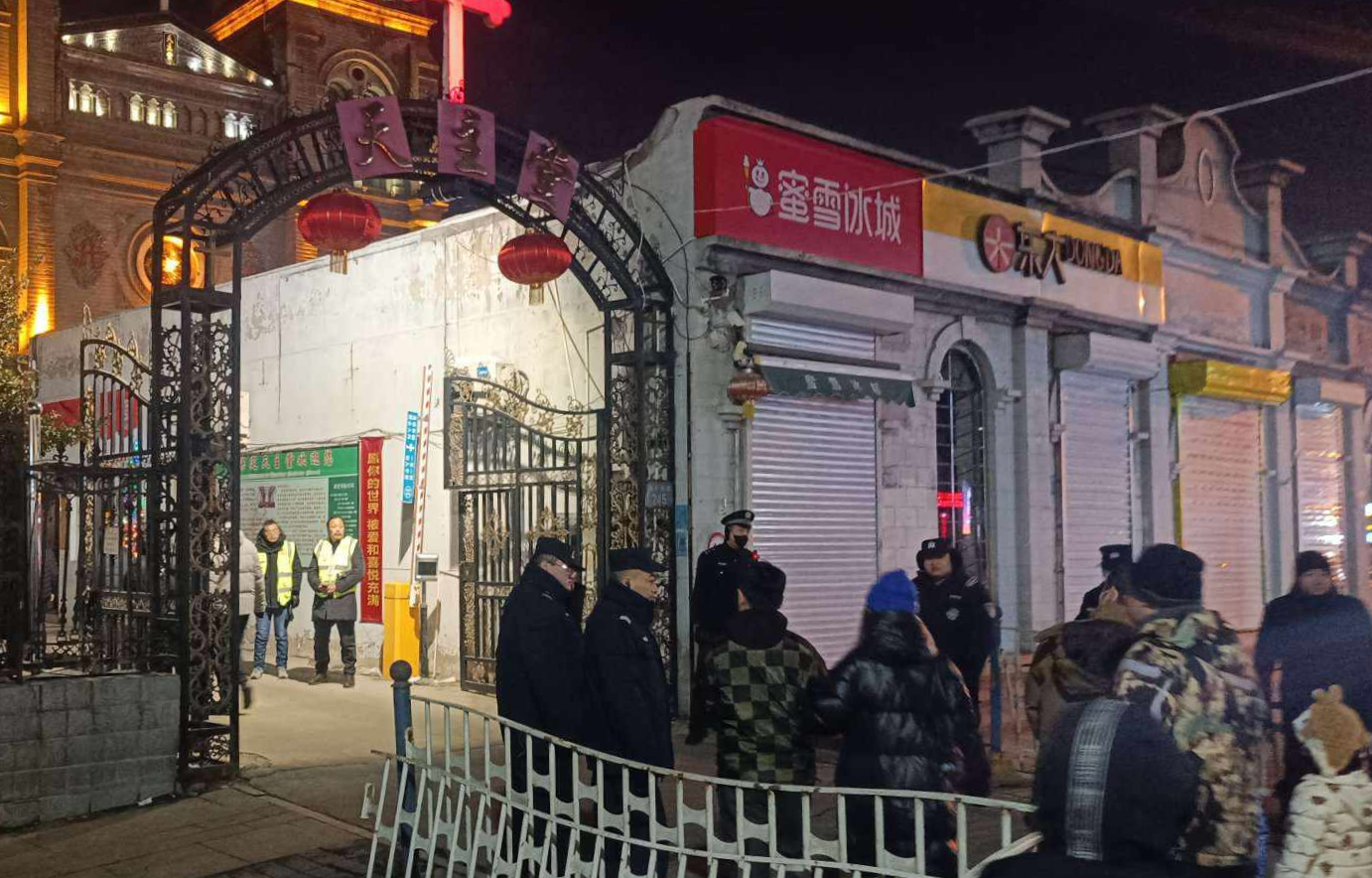Christmas vigils forbidden for children, traffic disruptions, and shop closures – these are among the stringent measures implemented by local authorities in Baoding, a northern city in the Chinese province of Hebei, not far from the capital Beijing.
Given the diocese’s rich history and a substantial Catholic population in the Baoding area, extraordinary security measures were enforced on Christmas Eve this year in the city center.
Authorities declared a traffic control zone in the historic center of Yuhua Road, home to the Cathedral of Saints Peter and Paul, the seat of the Baoding diocese.
No vehicles were permitted to enter the historic center after 4 pm, and buses passing through the area were rerouted. All shops surrounding the church were mandated to close, with a prohibition on Christmas sales and promotions.
A local source in Baoding confirmed these measures, revealing a significant police presence around the church. Officers, some in riot gear, were stationed near the church, and shops in the vicinity were shuttered.
The source disclosed that police prevented parents with children from entering the church, citing safety concerns due to overcrowding. The police presence inside the church created a tense atmosphere, in stark contrast to the festive spirit of the occasion.
Tensions were also evident in Donglü, a village renowned for its pilgrimage destination church located 20 kilometers from Baoding. According to the source, police had been stationed in Donglü a week before Christmas.
The village gained historical significance during the Boxer Rebellion in 1900 when Catholics sought refuge there. Despite the threat, the Boxer group attempting to attack the church in Donglü was defeated.
In addition to these measures, students at local schools and universities were instructed to stay on campus on Christmas Eve to avoid celebrations. Furthermore, items with Christmas elements were prohibited in dormitories.
The situation in Baoding reflects the broader trend of tightening controls on religion throughout the People’s Republic of China in recent years. Directives from the government, schools, and companies advocate “boycotting foreign holidays” and “banning the commercial promotion of Christmas.”
Meanwhile, official social media accounts commemorate events such as the anniversary of the Battle of Changjin Lake in North Korea, emphasizing military achievements over Christmas festivities.
The Chinese authorities extended Christmas greetings to the Patriotic Association of Chinese Catholics and the Chinese Christian Council, the official bodies for Catholics and Protestants.
The National Administration for Religious Affairs praised both associations for aligning with Xi Jinping’s thoughts and the spirit of the 20th Congress of the Communist Party of China. The Beijing government’s Christmas wish is for continued adherence to Xi’s path, sinicization, and the “strict management of religious affairs.”
During the recent 11th Conference, the official Protestant association elected new leaders. Wang Huning, Xi Jinping’s political advisor and head of ideology, urged delegates to adhere to sinicization, socialist core values, and traditional Chinese culture.
Wang emphasized the need for leaders of Christian associations to deeply understand the Party’s theories and policies on religion, reinforcing the call for strict management of religious affairs in line with Xi’s directives.
